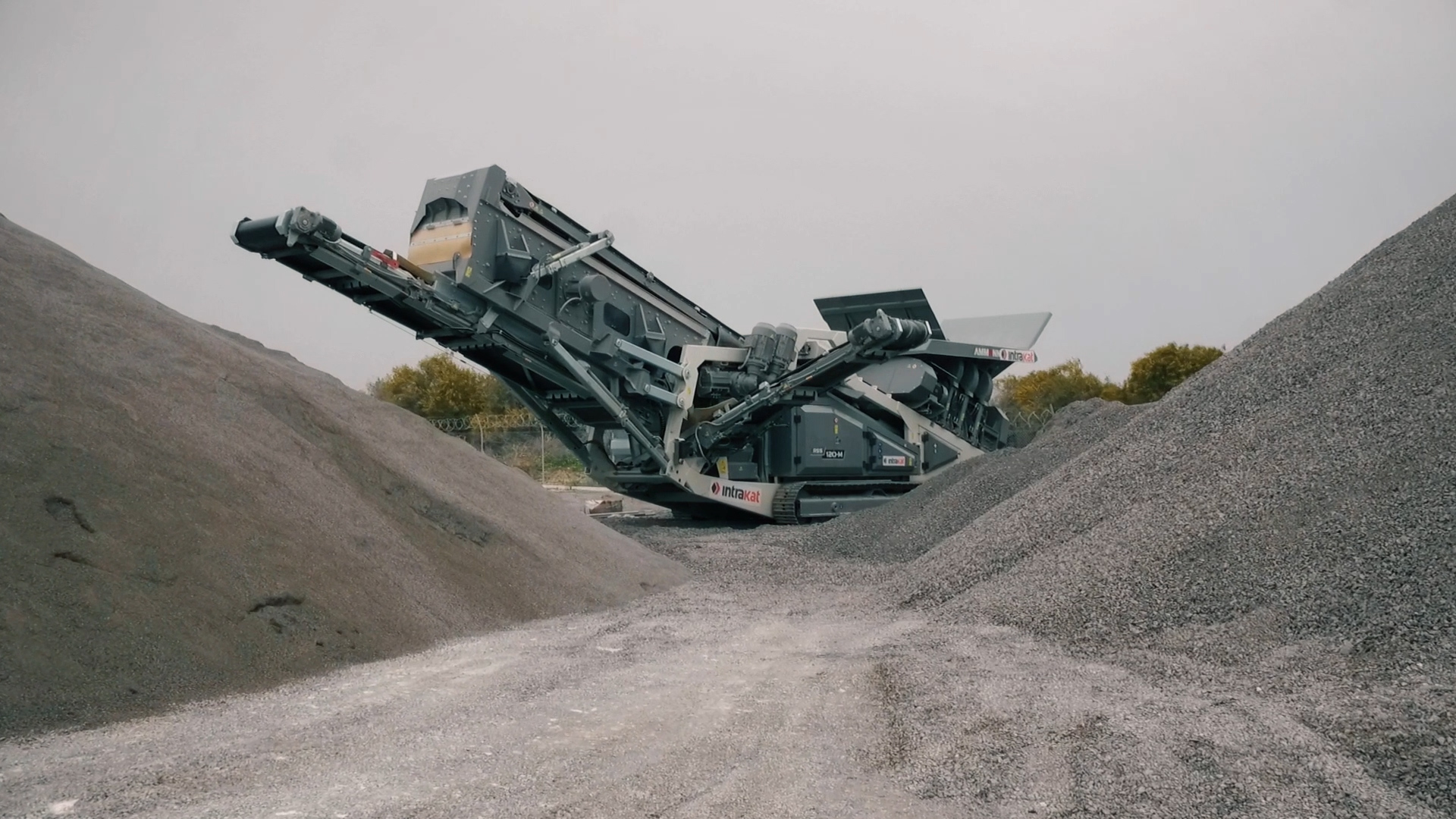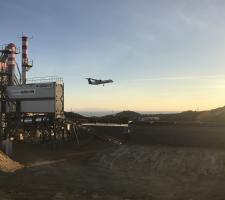
Airport construction is among the most stressful projects a business can face. Deadlines are extremely rigid and strictly enforced. Security creates logistical challenges. Other potential pitfalls, such as weather, can cause problems, too.
Greek construction company Intrakat added a significant burden to this already stressful scenario by taking on two closely scheduled airport projects – with only a single plant to supply the asphalt. Intrakat utilised the transport-optimised
Using the one plant was a significant cost-saver, but it also meant a missed deadline at the first jobsite would all but doom the second.
“The margins of time available for executing the works at the airports of Mykonos and Kos were particularly tight,” said Panagiotis Anagnostopoulos, project manager at Intrakat. “If it had not been possible to move the plant in the time available, we would have had to install two plants simultaneously at both the airports.”
14 Airports in Seven Months
The upgraded runways at Mykonos and Kos are two of the 14 Greek airports being revitalised in a seven-month period.
“To upgrade 14 airports in one of the most popular tourist regions of the world, even during the off-season, is a challenge and now we have ahead of us a period of rehabilitation and modernisation of these airports,” said Rolf Klitscher, project director for Fraport Greece, the concessionaire that is responsible for the maintenance, operation, management, upgrade and development of the 14 regional airports in Greece over the next 40 years. “When we take on a rehabilitation, we have a very short time, only 20 days, to close the runway.”
Intrakat is handling mix production at all 14 airports and is taking the work very seriously. “One of the most important infrastructure projects Intrakat has undertaken is the upgrading of the 14 regional airport and their expansions by Fraport Greece,” said Christos Papakatsikas, Airside Director at Intrakat.
The work at Mykonos and Kos was significant, involving full replacement of the asphalt at both airports. “The volume of the works involved about 40 000 tonnes of asphalt mixtures in Mykonos and 45 000 tonnes in Kos,” Papakatsikas said.
How did Intrakat meet the demanding deadlines and finish both projects on time?
STEP 1: Get there quickly
The ABT QuickBatch is built around the “container principle” logistics concept.
Key core components, including dryer/filter units and mixing tower modules, reside in housings that also serve as certified transport containers. The components are built as 20-foot or 40-foot units, the most common container sizes. When it’s time to move, the components are simply loaded onto the transport vehicle. The entire plant is contained in 10 units.
“It’s a containerised mobile plant that can be easily transported at a low cost,” said Jannis Charalambidis, Commercial Manager – SPANOS Group I.K.E., the Ammann Dealer for Greece. “It can be installed in just a couple of days without the need of any foundations.”
There is another benefit to the containers: They cost less to transport, and the methods for shipping them are more easily available – factors that can generate substantial cost savings, especially if a plant is repeatedly relocated.
STEP 2: Set up quickly, too
“The challenge of moving the plant from Mykonos to Kos was that we had a time window of two weeks,” Klitscher said. “During this time the asphalt plant had to be disassembled, shipped and reassembled, including commissioning.”
Anagnostopoulos estimated installation can be completed in 10 to 12 days and disassembly in eight to 10 days. “For the installation and disassembly, we used two cranes as well as a small hydraulic telescopic crane, which was not actually necessary,” he said.
No foundation is required, another time- and cost-saver. Components are plug-and-play, enabling quick assembly.
STEP 3: Recycle onsite
The job required the use of recycled asphalt (RAP) milled at the airport. The ABT QuickBatch is a capable recycler, and Intrakat took another time-saving step by employing the Ammann RSS 120-M – a shredder, with primary granulator, secondary granulator and screen, all built into a single machine.
The RSS 120-M utilises patented technology, specifically designed for RAP, milled or slabs, that enables gentle crushing at low RPM. This minimises the fines in the RAP, making handling and incorporation of the recycled material into the hot mix as efficient as possible.
The RSS 120-M is a mobile machine that’s ready to use within 30 minutes of arriving on the jobsite. Therefore the machine fully met Intrakat’s needs in terms of mobility, setup time, on-site production and reduced fines.
“This asphalt has to be processed before being used in production, and the Ammann RSS 120-M mobile is an excellent solution,” said Charalambidis.
STEP 4: Maximise production
The plant’s production capacity during the works in Mykonos and Kos reached up to 150 tons an hour. “It was not expected of course to reach nominal production capacity due to the delay from the addition of polymers to the mixture, which required additional mixing time,” Anagnostopoulos said. “It was fully satisfactory and definitely exceeded expectations.”
The production output proved even more essential because of rain delays. “The QuickBatch Plant was highly productive and flexible,” Papakatsikas said. “This way, we were able to make up for lost time owing to rainfall and bad weather in the remaining allotted time, working double shifts and extending the performance of the plant.”
“We managed to complete the project within the deadlines, overcoming delays due to bad weather,” Papakatsikas said. It was a happy ending for all.














